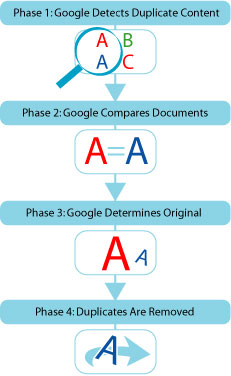Why using domain masking or pointer domains is a bad idea!
Why using domain masking or pointer domains is a bad idea!
- My company has multiple domain names that all appear to have the same content due to domain masking. These pointer domains appear to be different sites even though we only have one main site which we promote and fill content behind. Google appears to be indexing some of the pointer domains which is resulting in our pages being indexed across multiple domains or being dropped all together. Even if these domains have no content behind them, is this something we should correct?
Answer: No surprise—Google hates domain masking (also known as pointer domains) and considers them multiple versions of the same site, and thus, duplicate content.
For example, let's say you have these two unique URLs...
- http://www.my-boring-name.com/page.html
- http://www.really-exciting-name.com/page.html
...both showing the same content. Google visits the sites and sees the content on both as identical. But, because they don't like to display duplicate content, Google chooses one page over the other to display in the search engine results.

Google may alternatively view both these examples across your broader sites, notice a lot of duplicate content and decide not to index either. (For detailed information on how Google treats duplicate content, be sure to check out our SEO Guide to Preventing Duplicate Content.)
Our suggestion would be to combine everything into one site and get completely rid of all this masking. You don't need it. Set all your pointer domains to permanent 301 redirect to your main domain. That should then redirect whatever link equity these pointer domains have to your main domain.
And finally, regarding your missing pages, once you turn the masking off you sho...
